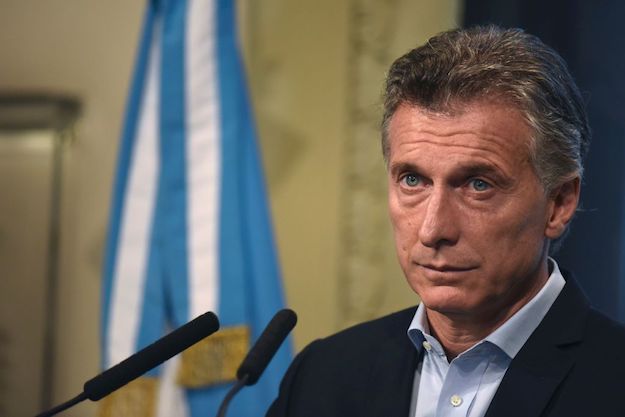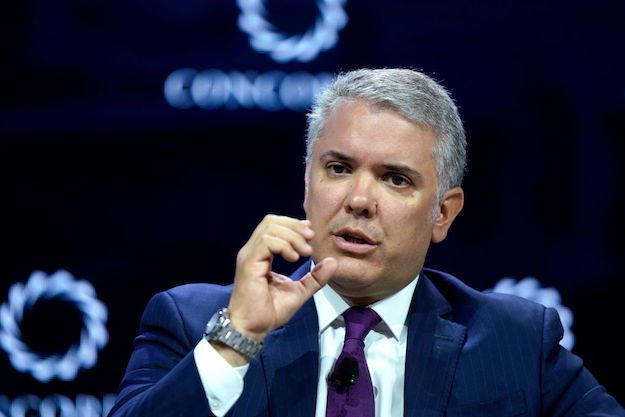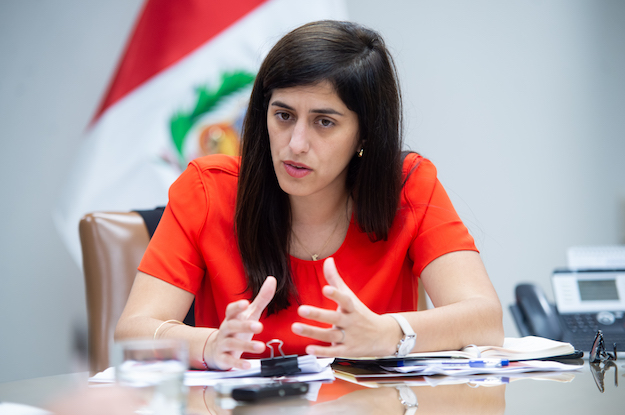After weeks of relentless pressure against the peso, on May 8 Mauricio Macri announced the beginning of discussions with the International Monetary Fund (IMF) for a credit line. The decision might placate financial markets and provide time for the government to continue its gradual reforms. But the deal will come with a heavy price: The IMF is infamous in Argentina – rightly or not – as the main culprit of the economic, social and political collapse of December 2001.
The origin of the present financial crisis was the shift of short-term financial investments from emerging markets towards developed ones, in response to the U.S. Federal Reserve’s policy of raising interest rates. As a result, the currencies of many emerging countries – including India, Russia and Turkey –devaluated sharply against the dollar in the past few weeks. This turbulence was felt in Argentina like a mighty storm, jeopardizing the future of Macri’s gradual approach to reform.
The South American country is particularly vulnerable to this external shock for two reasons: First, because it depends on issuing debt to sustain its high current account deficit; and second, and most important, because of the recent erosion in the market’s trust in the government’s capacity to continue implementing economic reforms. This lack of confidence comes from economic factors – such as persistently high inflation and the unimpressive growth rate of around 2 percent expected for 2018 – and political ones, including differences within Macri’s Cambiemos coalition about the reduction of subsidies for utility bills.
With the peso jumping from 20 to 23 per dollar in a matter of days, the Central Bank attempted to bring calm by selling $5 billion of its reserves (around 10 percent of the total) and then raising interest rates to 40 percent. Both measures were insufficient. A product of a history of high inflation, prices in the Argentine economy are informally linked to the dollar, making citizens particularly sensitive to the exchange rate. A further depreciation of the peso would have accelerated inflation even more: Despite government promises, prices will rise between 20 percent and 24 percent this year, roughly similar to 2017.
When Central Bank measures proved unsuccessful to stabilize the peso, and with the banking sector as the potential next victim of financial turbulence, the government had two choices: The first was to end its gradualist approach and launch hard cuts to public spending in order to avoid issuing debt at higher market rates next year. But since Macri came into office, he has argued that such a radical restructuring of the economy would be socially painful and politically suicidal. The second alternative, then, was to find a relatively cheap source of financing that would give the Central Bank the firepower it needed to contain the run. The IMF can offer this assistance, at moderate interest rates. The greatest cost of requesting the credit line, however, will be political.
While most Latin American nations implemented IMF-backed structural adjustment programs in the 1980s and 1990s, the Fund is particularly dreaded in Argentina. Since coming into power in 2003, Néstor Kirchner and his successor Cristina Fernández de Kirchner blamed the IMF for the high indebtedness and deregulation that led to the 2001 crisis, a view that is shared by a majority of the population. Macri’s decision to return to the Fund, therefore, touches a sensitive nerve of Argentina’s recent history, and brings back memories of the collapse of the early 2000s.
The administration and most analysts believe that an IMF credit line – the government expects $30 billion at a moderate 4 percent rate – will placate the markets and provide much-needed time to continue with the program of gradual reforms. The decision, however, might strain relations with the moderate Peronist opposition, which until now has been willing to reach agreements with Macri to pass reforms in Congress. For instance, the Chamber of Deputies is on May 9 expected to approve a reform to the Capital Markets Law, a government request to facilitate credit for companies. However, Peronists of all factions will come together to also pass a bill that would freeze raises in public utility bills, a measure Macri said he would veto. With the president’s popularity at 40 percent, the lowest since he came into office, the recent financial turbulence and the politically costly decision to turn to the IMF for help will likely reinvigorate Peronism ahead of the 2019 presidential elections. Further, since Macri’s Cambiemos coalition is in the minority in both houses, it will need the support of moderate Peronists to approve any deal with the IMF, which will not come for free.
The best scenario would be for the IMF to extend a Flexible Credit Line (FCL), a type of non-conditional assistance reserved for “countries with very strong economic fundamentals and policy track records.” Mexico and Colombia are the only countries with approved FCLs. The IMF seems to have learned from its role in the crises of the early 2000s and Managing Director Christine Lagarde has expressed her willingness to reach an agreement. But it remains to be seen if the Fund’s staff and Directory, which will have to approve the agreement, will be equally supportive of Argentina’s request. Given Argentina’s history and present challenges, the IMF might prefer to extend a Precautionary and Liquidity Line (PLL), which has lower requirements than FCLs but includes periodical reviews and conditions on the recipient country’s economic policy. Agreeing to this option would place the Macri administration in a political minefield. Strict conditionality from the Fund – for instance, a demand for further cuts to public spending – would likely galvanize the opposition and would go against the government’s goal of using the credit line to strengthen its gradual approach to reforms.
Last March, Macri said before Congress that “the worst has already passed,” arguing that after some painful reforms Argentina had finally entered a period of sustained growth and lower inflation. Only two months later, that optimistic assessment lies in ruins. Ironically, the key factor was the loss of confidence of international financial markets, which had praised Macri lavishly since he came into office, along with foreign analysts. The current crisis shows that solving Argentina’s numerous and complex economic challenges will take much longer than originally anticipated. Domestic and foreign observers alike should adjust their expectations to this reality. Macri hopes that an IMF credit line will provide the time the economy needs to stabilize in time for the 2019 elections. It is a high-risk gamble. Turning to the much-dreaded IMF could provide the president with the lifeline he needs to continue the reforms and secure reelection – or be the beginning of the end for Argentina’s gradualist experiment.
—
Binetti is a non-resident fellow at the Inter-American Dialogue and visiting professor at Torcuato Di Tella University, based in Buenos Aires.








